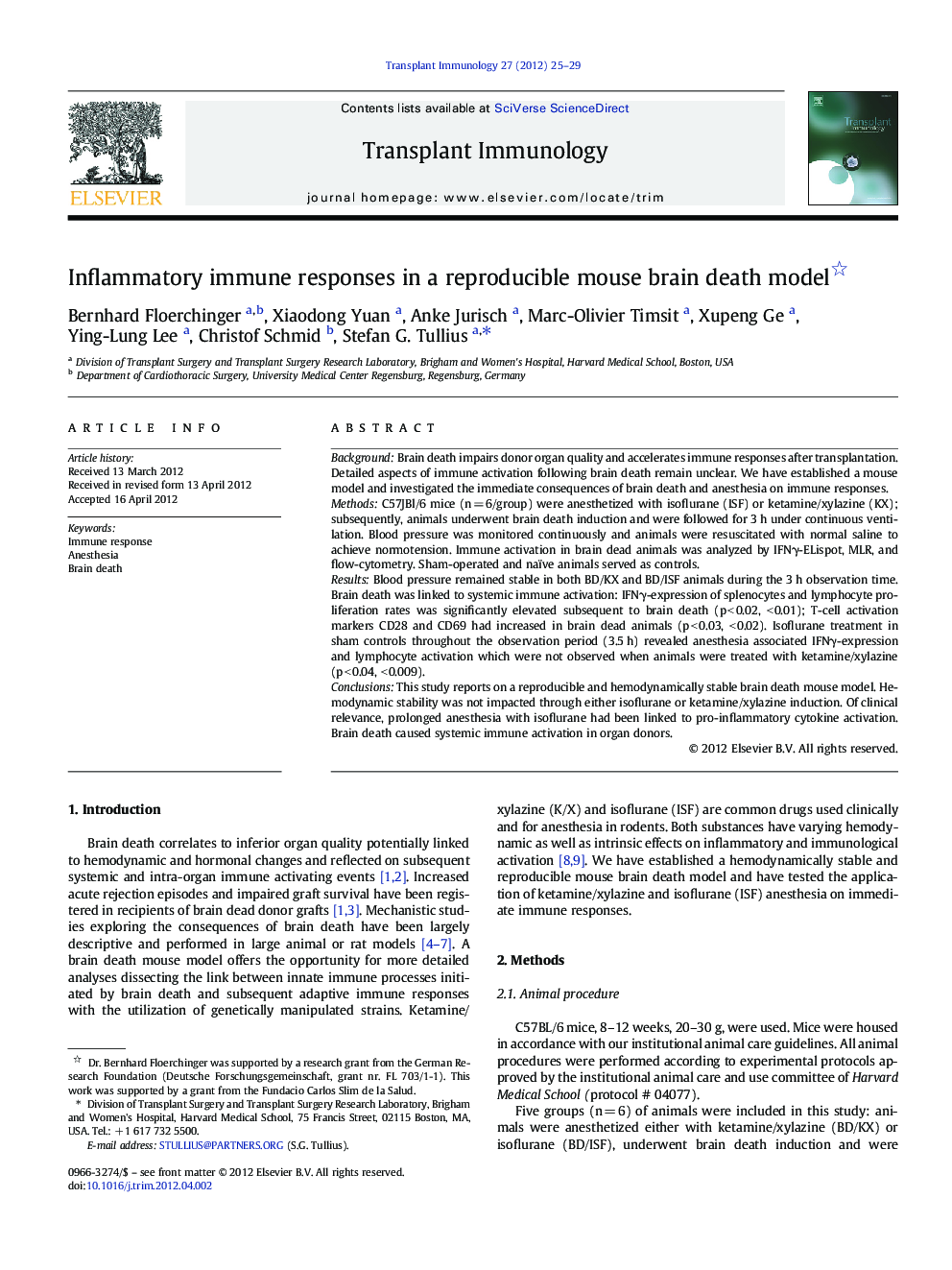| Article ID | Journal | Published Year | Pages | File Type |
|---|---|---|---|---|
| 3392144 | Transplant Immunology | 2012 | 5 Pages |
BackgroundBrain death impairs donor organ quality and accelerates immune responses after transplantation. Detailed aspects of immune activation following brain death remain unclear. We have established a mouse model and investigated the immediate consequences of brain death and anesthesia on immune responses.MethodsC57JBl/6 mice (n = 6/group) were anesthetized with isoflurane (ISF) or ketamine/xylazine (KX); subsequently, animals underwent brain death induction and were followed for 3 h under continuous ventilation. Blood pressure was monitored continuously and animals were resuscitated with normal saline to achieve normotension. Immune activation in brain dead animals was analyzed by IFNγ-ELispot, MLR, and flow-cytometry. Sham-operated and naïve animals served as controls.ResultsBlood pressure remained stable in both BD/KX and BD/ISF animals during the 3 h observation time. Brain death was linked to systemic immune activation: IFNγ-expression of splenocytes and lymphocyte proliferation rates was significantly elevated subsequent to brain death (p < 0.02, < 0.01); T-cell activation markers CD28 and CD69 had increased in brain dead animals (p < 0.03, < 0.02). Isoflurane treatment in sham controls throughout the observation period (3.5 h) revealed anesthesia associated IFNγ-expression and lymphocyte activation which were not observed when animals were treated with ketamine/xylazine (p < 0.04, < 0.009).ConclusionsThis study reports on a reproducible and hemodynamically stable brain death mouse model. Hemodynamic stability was not impacted through either isoflurane or ketamine/xylazine induction. Of clinical relevance, prolonged anesthesia with isoflurane had been linked to pro-inflammatory cytokine activation. Brain death caused systemic immune activation in organ donors.
► Detailed report of a hemodynamically reproducible mouse model of brain death ► Feasibility of frequently used anesthetics ketamin and isoflurane is evaluated. ► Brain death triggers a systemic inflammatory immune response in the donor. ► Extended isoflurane anaesthesia features an intrinsic inflammatory immune response. ► Immune response after brain death is not affected by inert ketamine anaesthesia.
